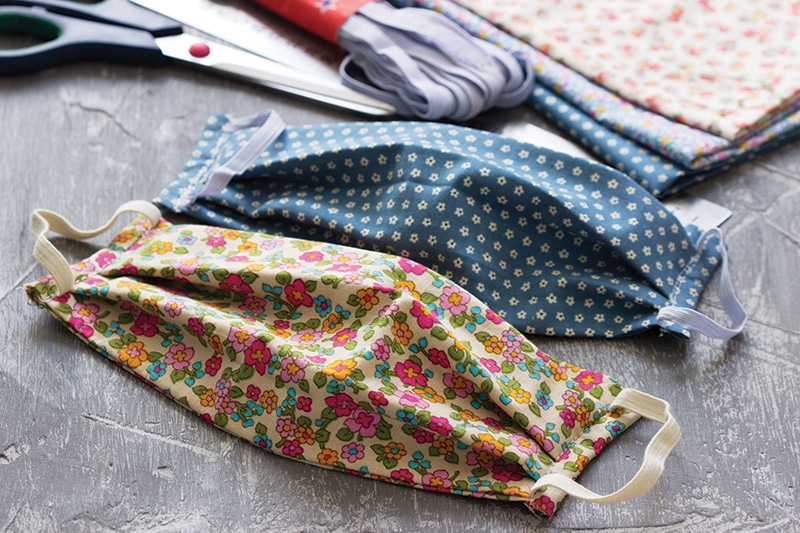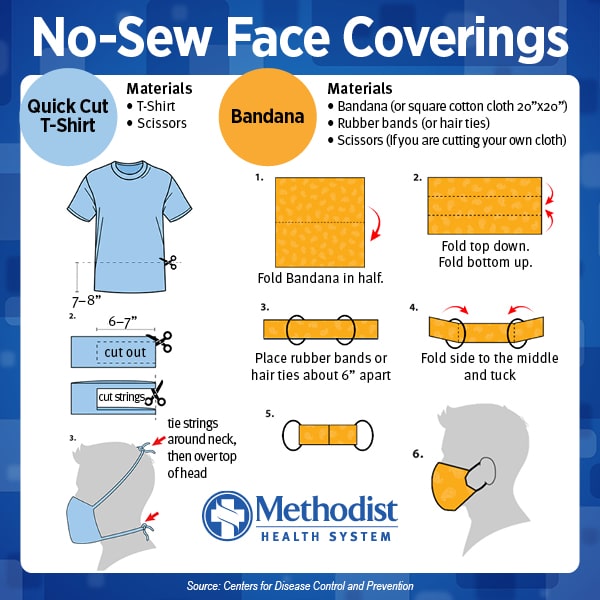Face masks are less for your protection and more to protect the people around you. Along with social distancing and good hand hygiene, this precaution will help slow the transmission of the coronavirus by anyone who may not know they have it.
Where can you find a suitable mask? Most of us need to look no further than the back of a closet or tucked away in a dresser drawer.
Tightly woven cotton swatches, such as those found in quilting fabrics and bedsheets, can be turned into makeshift masks, according to the Centers for Disease Control and Prevention (CDC). And if all else fails, T-shirts and bandanas can also be put to good use.
The CDC says these fabric masks should:
- Be snug and comfortable on your face without restricting your breathing
- Include ties or ear loops to hold it in place
- Be made with multiple layers of fabric
- Not be used for children younger than 2 years old or anyone who has trouble breathing, is unconscious, or cannot remove the masks by themselves.
Social distancing, hand hygiene, and disinfecting surfaces are still the gold standards for keeping COVID-19 at bay. Covering your face, however, can help when venturing out to public spaces, such as pharmacies and grocery stores, says Marie Wilson, MSN, RN, CIC, manager of infection prevention and control at Methodist Dallas Medical Center.
“Masks work by trapping germs on the front of the mask as you breathe in,” Wilson says. “They also may capture any germs you breathe out.”
Because of this, she says, you should handle your mask only by the ear loops and take care not to touch the cloth. It’s always best to wash your hands after handling any mask. After use, it can be tossed into the washing machine with detergent to be cleaned.
Do-it-yourself face coverings are especially handy as manufacturers strive to preserve medical-grade ones for those fighting on the front lines of the pandemic.
“Members of the public are doing their part in helping our healthcare heroes by using homemade masks or cloth face coverings,” Wilson says.
4 unusual symptoms of COVID-19.


